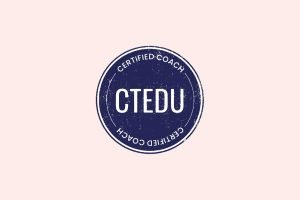Last updated on March 15, 2024
Mindset coaching isn’t just about theory; it’s about practical, impactful tools that bring real change.
This article is your go-to guide for the most effective mindset coaching tools available this year. We’ve sifted through the latest trends and techniques to bring you the best of the best.
From cutting-edge apps to innovative strategies, these tools will help you and your clients achieve breakthroughs and navigate the complexities of modern life with more ease and confidence.
Table of Contents
1. Daily Gratitude Diary Template
The Daily Gratitude Diary is a simple yet powerful template designed to cultivate gratitude. By encouraging daily reflections, it helps individuals open their eyes to the positives in their lives, no matter how small.
It’s an invaluable tool for building a resilient and appreciative mindset, essential in both personal and professional growth.
2. Are You Sitting Too Comfortably Exercise
The Are You Sitting Too Comfortably Exercise pushes individuals to examine areas of their lives where comfort might be leading to complacency. It’s a thoughtful, structured approach to identifying and challenging personal boundaries.
This tool is particularly effective in a coaching setting because it helps:
- guide clients to explore new opportunities for growth
- set goals that stretch their abilities
- embark on paths they might have previously avoided due to fear or comfort
3. Adopt a Growth Mindset Exercise
This exercise involves identifying traits of a fixed mindset, such as:
- a reluctance to take on challenges
- a tendency to give up quickly in the face of obstacles
The exercise then guides individuals through reorienting these traits towards growth-focused thinking, where:
- challenges become opportunities for learning
- effort is seen as a path to mastery
- feedback is welcomed as a tool for improvement.
4. Expand Your Mind – Cartesian Questions
The Expand Your Mind – Cartesian Questions exercise is designed to dissect and analyze decisions and beliefs.
By asking, “What would happen if…?” or “What wouldn’t happen if…?,” it encourages clients to think deeper and have a broader perspective.
It’s incredibly useful in untangling complex decision-making processes and helping individuals and teams understand the consequences of their choices and explore different outcomes.
5. Fact-Checking Thoughts Worksheet
The Fact-Checking Thoughts Worksheet is a reality check for your mind. It differentiates between factual and emotional responses, helping clients have a clearer understanding of their thought patterns.
By methodically analyzing thoughts, especially those that are negative or distressing, individuals can fully recognize them and reframe them into something more positive and healthy.

6. Draw Out Your Gremlin Exercise
The Draw Out Your Gremlin Exercise helps people identify and confront their inner critic (gremlin). It involves visualizing this gremlin and understanding the negative self-talk and limiting beliefs it perpetuates.
By bringing these thoughts to the forefront, it becomes easier to acknowledge, challenge, and change them.
7. Letting Go Exercise
The Letting Go Exercise is a powerful tool for emotional release and moving forward. It involves identifying emotions, beliefs, or experiences that no longer serve us and consciously deciding to release them.
In this exercise, participants are encouraged to envision themselves as the monk, carrying the weight of unnecessary burdens. These burdens represent various aspects of their lives—be it past regrets, grudges, fears, or self-limiting beliefs.
The process involves deeply reflecting on these burdens and recognizing how they hold us back, just like the monk who realizes the futility of carrying a hefty load on a long journey.
8. Get Motivated: What Words Inspire You To Action Exercise
Get Motivated: What Words Inspire You To Action is centered around the idea that certain words or phrases have the power to ignite action and spark change in us.
The exercise involves a reflective process where individuals identify the specific words that resonate with them deeply.
These could be quotes, affirmations, or even single words that embody the energy and drive they seek.
The aim is to create a personalized collection of these motivating words, which can then be used to inspire and encourage action, especially in moments of procrastination or lack of motivation.
9. New To-Do List – Weekly Daily Task Planner
Long-lasting mindset change can’t be achieved without implementing daily habits that support it. If your clients don’t take action, becoming aware of what needs to be done won’t make a difference.
That’s why the To-Do List – Weekly Daily Task Planner is such a useful tool to have. It ensures that intentions turn into actions.
The focus is on taking SMART actions each day and week to forge a path toward sustainable mindset change.
10. Spheres Of Influence Coaching Exercise
The Spheres Of Influence Coaching Exercise guides individuals in mapping out different aspects of their lives, categorizing them into spheres:
- things they can control
- things they can influence
- things beyond their control
By recognizing and accepting what cannot be controlled, individuals can channel their efforts more effectively into areas where they can make a real difference.
Conclusion
Mindset coaching in 2024 is an exciting and evolving field, and these tools represent the forefront of what it means to grow, adapt, and thrive in today’s world.
By incorporating these coaching tools into your practice, you can help individuals reflect, set goals, and create personalized strategies for mindset shifts.
They are the instruments through which you can help your clients unlock their potential, overcome barriers, and achieve a fulfilling life.
We hope this list has helped you find the best mindset coaching tools for your needs. If you’re looking for more resources, check out The Coaching Tools Company. They have a vast library of mindset coaching exercises, forms, and worksheets you can use today.
The Life Coach Magazine staff is your team for high-quality content on topics from personal development, to coaching tips, to how to grow your coaching business.

















Be First to Comment